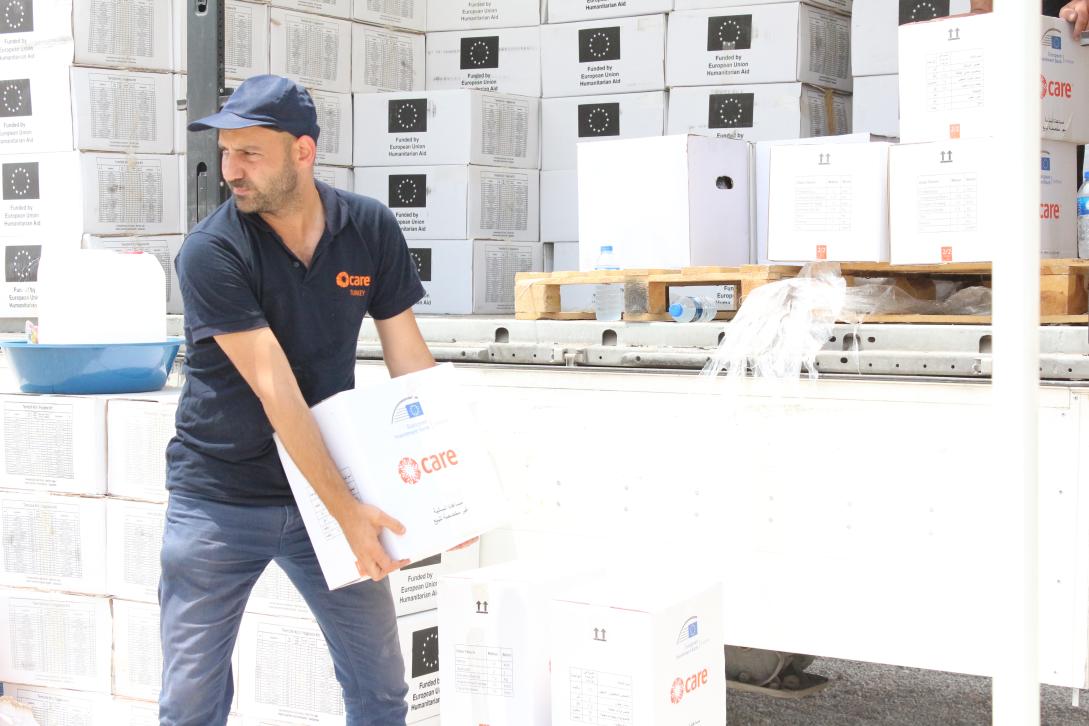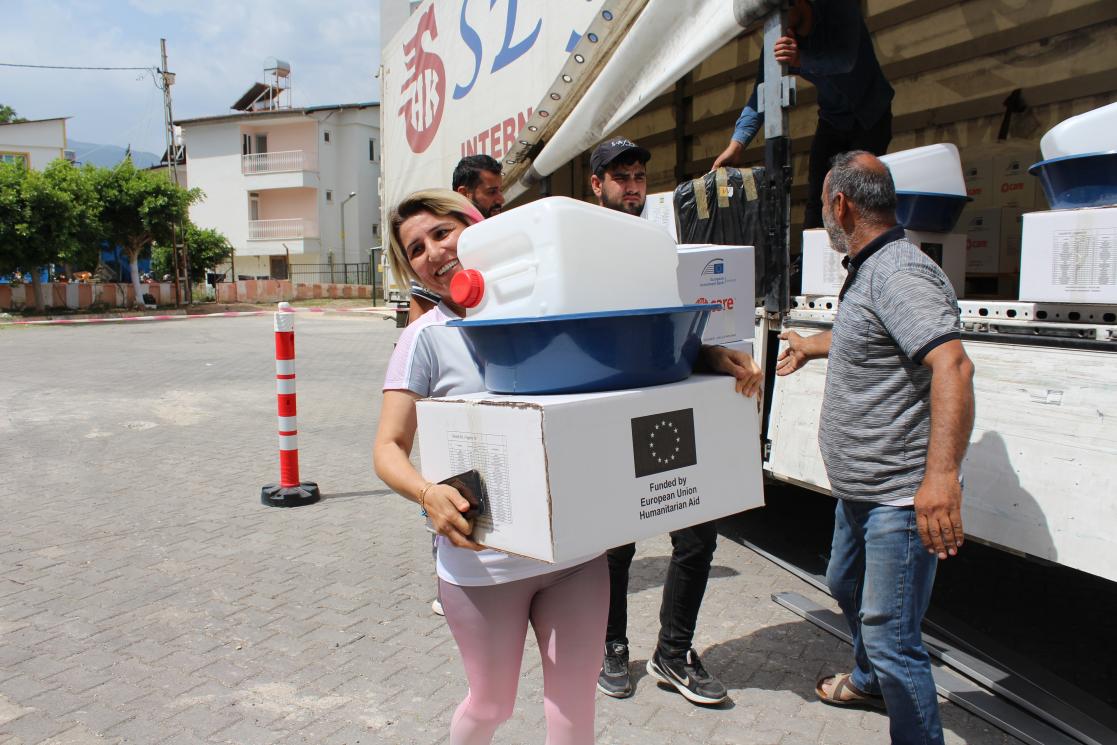Humanitarian Response in the Aftermath of the 2023 Earthquakes in Türkiye and Syria

In January 2025, the humanitarian situation in Türkiye and Syria remains dire following the devastating 2023 earthquake, which killed tens of thousands of people and injured many more. The earthquake, which struck with a magnitude of 7.8 (followed by another powerful 7.5 quake), caused widespread destruction, leaving thousands of buildings in ruins and displacing millions.
The earthquakes occurred while the humanitarian crisis in northwest Syria was already at its most severe point since the onset of the Syrian Civil War. In Southeast Türkiye, the earthquake created further challenges for already vulnerable refugees and the Turkish population.
Yet, during the recovery process, stories of hope and collaboration have emerged. The EIB Institute, the philanthropic and social impact arm of the European Investment Bank Group (EIB Group) is proud to have supported CARE Luxembourg and their partners in delivering targeted and impactful relief to the affected communities.
Key Achievements:
Emergency Food Assistance:
- Türkiye: 3,179 households (15,077 individuals) received life-saving food support, including ready-to-eat rations and e-vouchers.
- Syria: 320 households (1,460 individuals) received multi-purpose cash assistance to meet urgent needs.
Shelter and Settlement Support:
In Syria, 447 households (2,193 individuals) benefited from debris clearing and settlement improvements, creating safer living conditions for displaced families.
Access to Clean Water:
In Syria, 1,890 households (9,733 individuals) gained access to safe drinking water through water trucking and storage tank distribution.
Community Solutions:
Gender equality and inclusivity were integral to the program’s design, ensuring that vulnerable groups, including women, children, and the elderly, were prioritized.
This initiative demonstrates our ongoing dedication to show solidarity during urgent humanitarian crises and fostering resilience.

CARE Luxembourg
Disproportionate impact of humanitarian crises on women and girls
The earthquake in Türkiye and Syria, which directly affected 9.1 million people, had a severe impact on women, exacerbating their vulnerabilities. Women and girls faced increased risks of gender-based violence, including sexual harassment, exploitation, and domestic violence. Many were displaced, living in overcrowded shelters with limited privacy and security. Pregnant women struggled to access essential medical care, with over 356,000 in urgent need of assistance. Violence against women often escalates during humanitarian disasters, highlighting the urgent need for targeted interventions to protect and support vulnerable populations in crisis situations[*].
We thank Frédéric Haupert and Lena Ziehmer from CARE Luxembourg a.s.b.l., CARE Türkiye, and Takaful Al Sham - تكافل الشام for their leadership and unwavering commitment.
#EIBInstitute #HumanitarianAid #Resilience # Türkiye SyriaEarthquake
* Natural hazards, disasters and violence against women and girls: a global mixed-methods systematic review | BMJ Global Health





